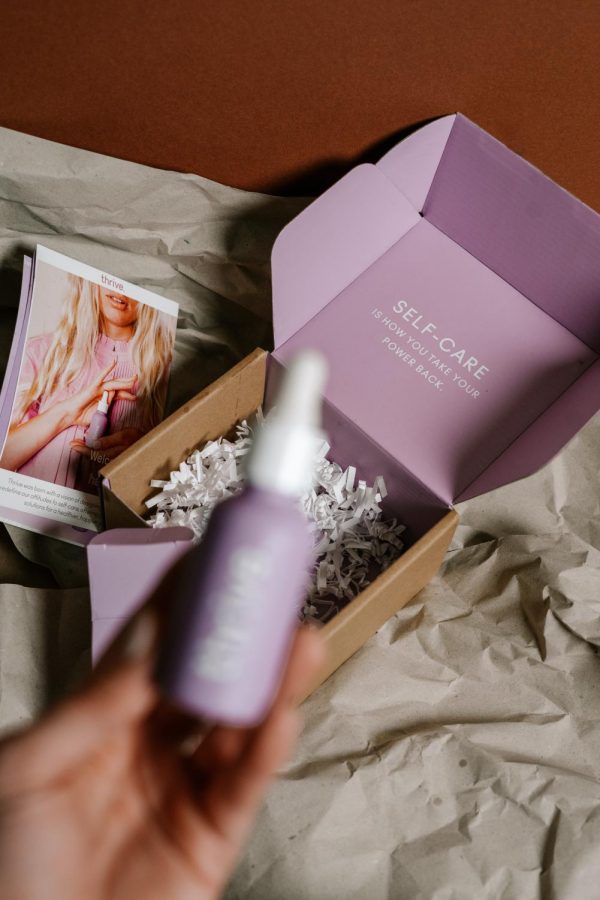Consumerism Is Not Self-Care
How marketing undermined a radical concept and turned it into a multi-billion dollar industry.
Advertisers have latched on to the rising popularity of self-care in order to market products ranging from diet supplements to skincare.
Around the mid 2010s, Americans began seeing the term “self-care” pop up more and more. Countless articles urged us to let go, relax, and take breaks when things were stressful. Google searches for the term surged. For many, it was a novel concept. In a high stress world where we are constantly encouraged to work as hard and as much as possible, being told to take time for yourself was certainly a different message to hear.
Although the phrase may have entered mainstream discussions in the 2010s, self-care was initially introduced in Black radical and feminist movements of the 1950s as a means of resistance against systems of white supremacy, patriarchy, and capitalism. Many activist groups continue to stress the importance of self-care in preventing burnout and keeping movements alive.
Audre Lorde, an American author and poet, wrote about self-care in her 1988 book, A Burst of Light, saying, “Caring for myself is not self-indulgence, it is self-preservation, and that is an act of political warfare.” For Lorde, self-care was a deeply political practice that allowed her to heal and protect herself from the repeated trauma of oppression.
Despite its radical roots, self-care as we know it today has been watered-down and rebranded. Perhaps a more accurate descriptor would be “branded,” as the popularity of self-care coincided with the birth of the modern wellness industry. Of course, American society is no stranger to fitness fads, but this industry is different. Today, a vast and seemingly random array of products including lotion, candles, overpriced drinks and food items, crystals, meditation apps, and fitness gear are all marketed under the label of ‘self-care.’ This industry was valued at approximately $11 billion in 2018, and has only continued to grow. Sometimes, when we are urged to “treat ourselves” to new clothes or beauty products, consumption itself becomes the act of “self-care.”
Self-care itself is certainly not a bad, selfish, or frivolous thing. On a basic level, it is simply taking time for yourself to recharge and relax. “I practice self-care because it makes me feel better by relieving stress due to COVID-19, school, and the general stresses of daily life,” said Hunter College High School sophomore Reese Powell. “The best self-care is the things you do to actually take care of yourself and your mental health.”
The meaning of the term “self-care,” as it is used in mainstream media and conversations, however, is not only vague, but can change as fast as trends do. It seems as though almost anything, from taking supplements, to putting on makeup, to “consciously unfollowing” people on social media, can fall under the umbrella of self-care. At its core, however, self-care is about prioritizing your physical and mental health, finding balance, self-compassion, and maintaining a lifestyle that is fulfilling and sustainable.
There is no denying that for many, a certain joy comes from buying something new, no matter how much we might wish otherwise, and no matter how much we reflect on how capitalism and consumerism influence our desires. Despite this, in order to truly care for ourselves, we must divorce the idea of self-compassion from our desires to spend. When advertisers tell us to “treat ourselves,” there’s a deeper implication below the surface — choosing not to spend is self-deprivation, something that we are told people who want to be kind to themselves should definitely never do.
In many ways, this phenomenon is simply just a repackaging of an idea that has existed since the dawn of advertising, the idea that without this new product, we will never be happy or satisfied. This recent trend in self-care focused marketing is a clear reaction to the ever-rising stresses that we face. Consumers are looking for solutions, and companies have been quick to capitalize on this desire.
This view of self-care hurts more than just our wallets. In looking for a “quick fix” in the form of a product, we fail to see the greater issues bubbling under the surface. People of all ages report rising levels of stress, burnout and anxiety. Hospitalizations for mental health crises are on the rise. These issues have only been worsened by the Coronavirus pandemic. We do a major disservice to ourselves and each other by treating these issues as individual problems, as opposed to part of a greater system that harms us all. Looking to capitalism to fix issues that result from living in a capitalist society will continue to leave us depressed, burnt out, and constantly searching for a new solution. Instead of questioning the norms and conditions of our society, such as the 40-hour workweek, lack of universal access to healthcare and mental health services, and extremely limited vacation and family leave, we are being told to simply buy a new product to solve our problems. No amount of bubble baths and green juice will fix a culture that constantly devalues our emotional well being, and tells us that the only way we can be successful and happy is to keep working.
At its core, self-care is about prioritizing your physical and mental health, finding balance, self-compassion, and maintaining a lifestyle that is fulfilling and sustainable.
Nora Sissenich is an Editor-In-Chief for 'The Science Survey,' a role that she values deeply because it allows her to offer guidance and insight through...











